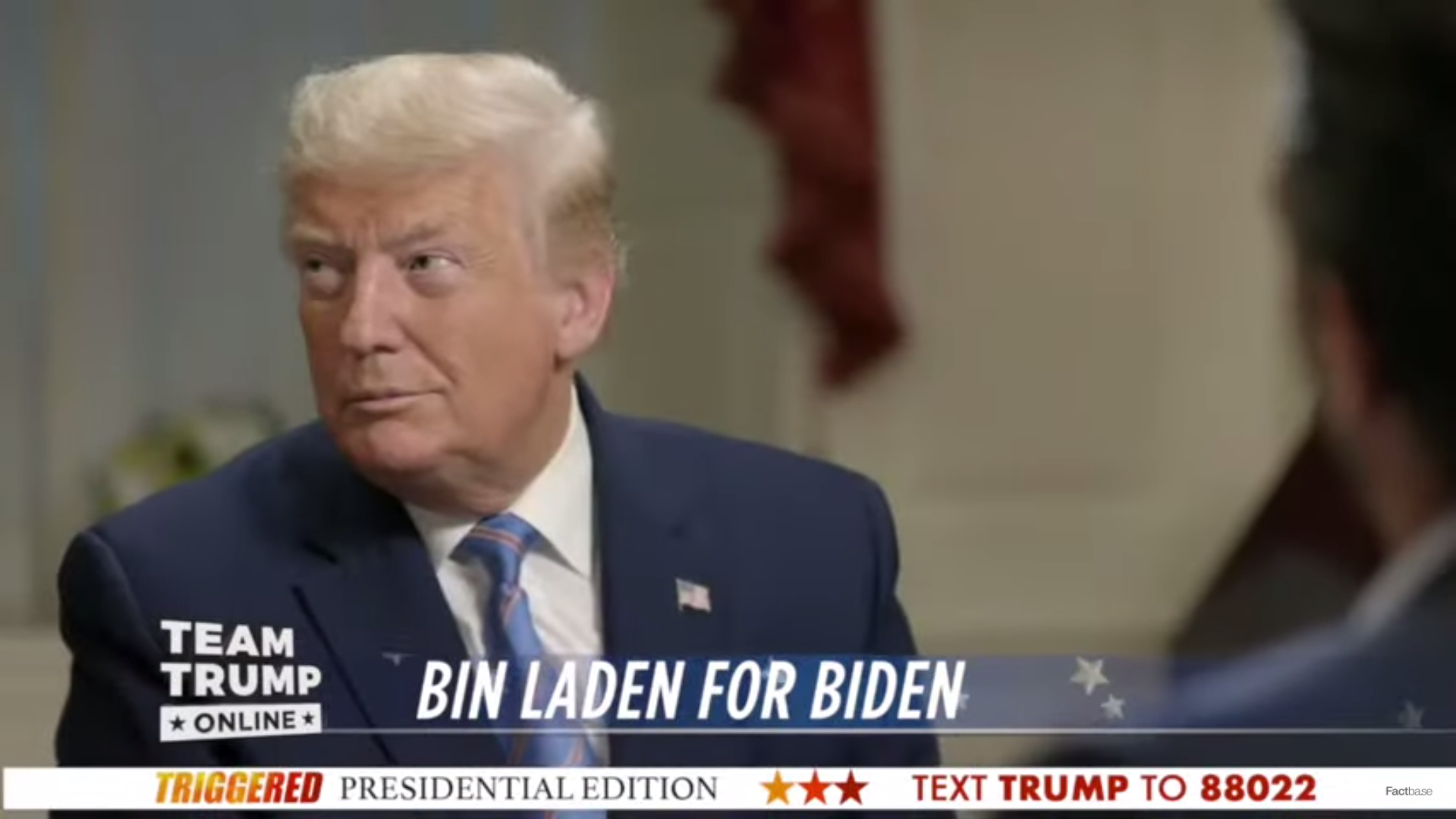This Juneteenth, think about Donald Trump. I mean really think about him
Consider how this president will go down in history


Your support helps us to tell the story
From reproductive rights to climate change to Big Tech, The Independent is on the ground when the story is developing. Whether it's investigating the financials of Elon Musk's pro-Trump PAC or producing our latest documentary, 'The A Word', which shines a light on the American women fighting for reproductive rights, we know how important it is to parse out the facts from the messaging.
At such a critical moment in US history, we need reporters on the ground. Your donation allows us to keep sending journalists to speak to both sides of the story.
The Independent is trusted by Americans across the entire political spectrum. And unlike many other quality news outlets, we choose not to lock Americans out of our reporting and analysis with paywalls. We believe quality journalism should be available to everyone, paid for by those who can afford it.
Your support makes all the difference.Today is June 19th. It is known as Juneteenth, commemorating day that the last of the slaves in the southernmost part of the Confederacy were emancipated and the Civil War ended. It has long been celebrated in the African American community as a day of celebration of freedom and pride in achievement. In recent years, its importance has grown as a day of national and even global reflection on the legacy of slavery and racism.
This Juneteenth presents an inflection point — as the killing of George Floyd, its aftermath, and continuing police brutality have created the opportunity for a true reckoning regarding systemic racism. Yet the counterpoint to this opportunity has been the conspiracy-obsessed, racist dog-whistling of the Trump administration. If ever a leader was unwilling and unable to meet a moment in history, it is this one.
Trump has backed off scheduling his kick-off rally on Juneteenth, but he is hanging on to the venue of Tulsa, a very conservative city in a very conservative state that he is certain to win. But just as he surely knew about Juneteenth, he certainly was told of Tulsa’s tragic past significance in the long history of African American oppression.
Tulsa, Oklahoma is where the worst race riot in American history occurred in 1921. On May 30 of that year, a black teenager entered an elevator in a downtown building. Shortly thereafter, the young white female elevator operator screamed; the teenager was arrested the next day based on a rumor reprinted in the Tulsa Tribune that police had arrested him for sexually assaulting a white woman. A mob gathered outside the courthouse demanding that the sheriff hand the boy over to be lynched.
Later that night, 75 armed black men, many of them First World War veterans, came to the courthouse to try to prevent the lynching and were met by a mob of 1,500 white men. The outnumbered black men retreated to their segregated neighborhood of Greenwood, while the mob followed and terrorized the city. By dawn, the white mob had poured into Greenwood, looting and burning black homes and businesses on what was known as “Black Wall Street.”
It is estimated by the Tulsa Race Riot Commission that somewhere between 100 and 300 African Americans were killed and 8,000 made homeless over the night and morning of May 31 and June 1, 1921. The next day, the police released the black teenager — whom the police concluded had committed no crime and may have accidentally bumped or stepped on the foot of the elevator operator. The National Guard and police destroyed their records from the riots and the Tulsa Tribune removed its incendiary front page from its archives, trying to bury this sordid history of racist mass murder.
Enter Donald Trump. Why would he pick Tulsa to cram 20,000 almost exclusively white people into an arena during a pandemic for a rally to kick off his re-election campaign? There is a precedent here.
Ronald Reagan, a far more genial racist, kicked off his 1980 campaign for the presidency in Philadelphia, Mississippi, a hamlet in rural Neshoba County where three young civil rights workers were kidnapped, murdered and thrown in a shallow grave during the Freedom Summer of 1963. Reagan declared to the crowd, “I believe in states’ rights.” "States' rights" was a rallying slogan for racial segregationists opposing civil and voting rights legislation at the time, used by many including George Wallace in 1968, who also used the phrase recently put back into use by President Trump: “First the looting, then the shooting.” Columnist Bob Herbert wrote, "It was understood that when politicians started chirping about 'states' rights' to white people in places like Neshoba County they were saying that when it comes down to you and the blacks, we're with you.”
Trump’s behavior is of a piece with the Republican strategy that has been in place since the struggle for civil rights in the 1960’s. The South had historically been solidly Democratic because Southern Democrats embraced segregation. Nixon saw in the resistance to civil rights legislation an opportunity to turn the South into a solid Republican stronghold. Although Carter and Clinton, two Democrats from the Deep South, won a few states, the South has been Republican ever since.
Trump doesn’t need the racist dog-whistles of “law and order” or “looting and shooting” to win the South. He has a record to run on for the last four years talking about “s**thole countries,” asking why more immigrants don’t come from Norway, praising “the very fine people on both sides” in the Charlottesville protest and “people trying to take away our culture” as embodied in the Confederacy, which is a long way from Queens.
Andrew Gillum, the African American mayor of Tallahassee who narrowly lost in 2019 to Ron DeSantis for Governor of Florida in a race characterized by thinly veiled race-baiting, famously said of DeSantis: “I don’t know if he is a racist. But racists think he’s a racist.”
It doesn’t matter whether Trump is a racist. In the midst of a national reckoning on race, he is assembling an essentially all-white audience in one of the reddest states in the country. His rally allows distraction from the fact that by the time he meets the red-faced masses in Tulsa, more than 120,000 people will be dead and two million infected in an avoidable pandemic that disproportionately affects people of color.
Our president is bringing together this monochromatic crowd in a city that exploded in the worst orgy of unprovoked racist violence against black people in American history. And he is doing so at a time when multi-racial, peaceful crowds are being gassed and beaten and called terrorists for protesting systematic racist violence by American police forces, systematic violence that Trump denies.
This is Trump’s nostalgia play, where his beloved Gone with the Wind is always streaming, Confederate generals represent “Winning, Victory and Freedom,” and Black Lives Matter activists are radical provocateurs. At a time when the original sin of racism finally is up for honest discussion, we are led by a man whose political survival hinges on stoking the fires that are breaking out nightly throughout our country.
Join our commenting forum
Join thought-provoking conversations, follow other Independent readers and see their replies
Comments